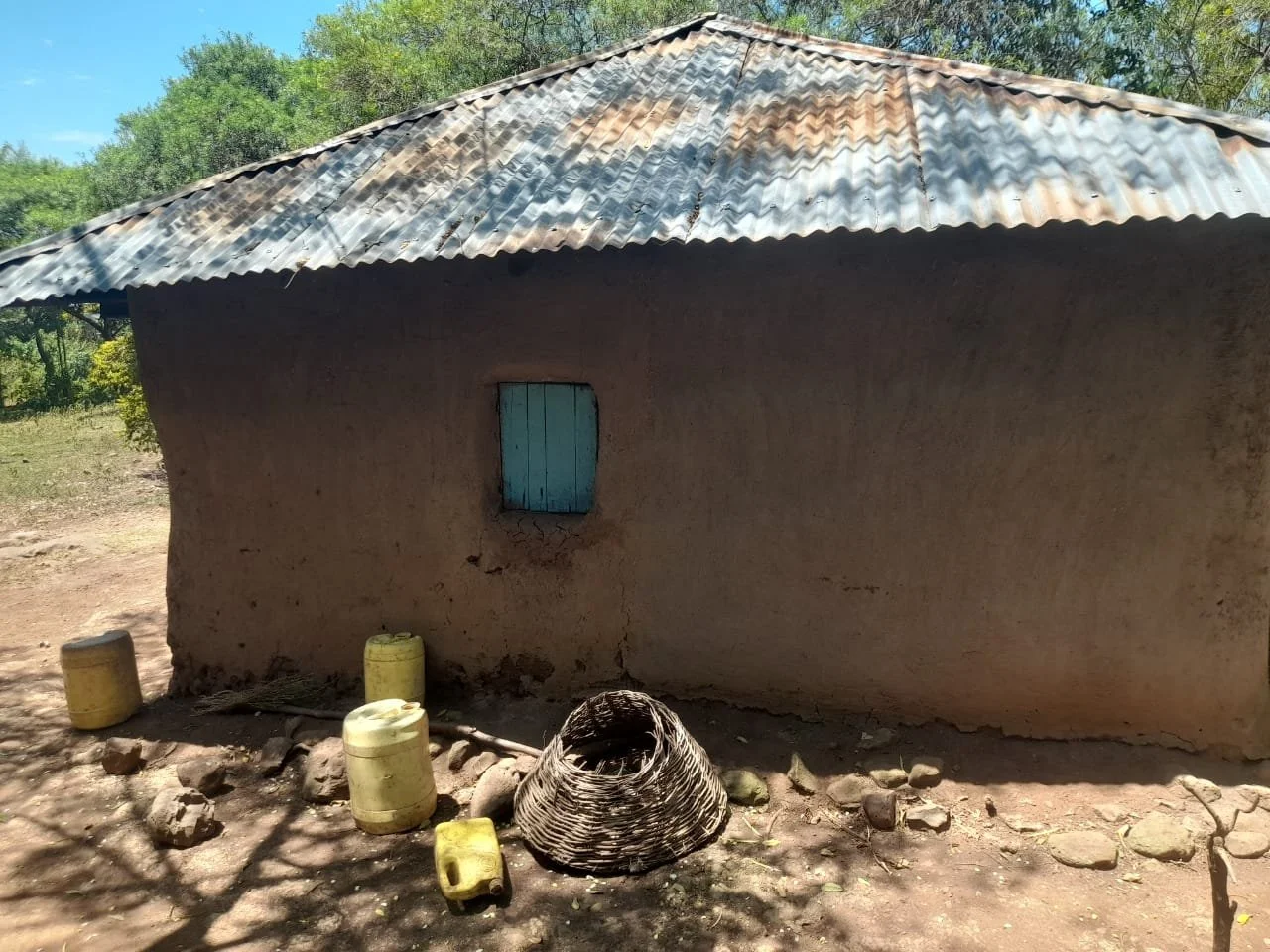Founder’s notes: housing security for widows
Dear friends,
Each day, my soul says yes to working with widows for I am amazed by the generous leadership of the widows.
This month (January), we began conversations on our first housing project in partnership with Onsite-ICF, a social enterprise founded and led by Steve Ross that aims to put good housing within reach. Our goal is to build 58 three-roomed houses for Nyanam widows in 2023. Onsite-ICF is donating 29 houses to Nyanam widows, one house per leadership circle. We (the widows, Nyanam and Onsite-ICF) will pull our resources to build another 29 houses for a total of two houses per leadership circle.
Accompanied by Ken Munyendo, the General Manager for East Africa at Onsite-ICF, we visited six Nyanam leadership circles, and listened to many housing stories. As a young widow, Eunice left her marital home because she had no house to live in, no capacity to build one, and no one to support her in housing construction. With her three children, Eunice has lived in her natal home for over 10 years, sheltering with her widowed mother who loved and cared for her and her children. While I can only imagine the stigma Eunice has had to overcome as a widow who returned to her natal home, my soul leaped with joy as the widows in Ruma Leadership Circle unanimously chose Eunice as their priority for this housing project.
A Nyanam widow house
We also met Alice, a widow suffering with undiagnosed mental illness. Alice lives with her children in a small, dilapidated house in a swampy area. The walls of her house are falling apart because of dampness. The widows in Tieng’o Leadership Circle love and honor Alice. They give her time to speak and listen to her even when her thoughts are not clearly articulated. For Tieng’o, Alice was their priority. Alice spent the rest of her time in this gathering smiling, inviting us to come see where her home is. What love is this that sees and prioritises the least among the least.
The same story occurred at Wuoth Mokue Leadership Circle. At first, Monica felt she had a house except that it was just too small. She talked about her tiny house jokingly. I didn’t understand the depth of her predicament until another widow in her group shared about the shame of having such as a small house. Monica does not even have space in her bedroom to change clothes after a bath. She must ask all the grandchildren to get out of the house so she can close the door to get dressed. Again, the women of Wuoth Mokue proudly chose Monica as their priority for this housing project.
Across all the leadership circles, the widows did not only identify their sisters in great housing need, but they also pledged their own resources to help with constructing the second batch of 29 houses. We reminded ourselves of 1st Kings 4:1-7, a Biblical story of a widow in debt who sought help from Elisha, a prophet. Elisha asked the widow, “What do you have in your house?” First, Elijah knew or assumed this widow already had a house. Second, Elijah acknowledged this widow had something that could help address her need. At Nyanam, we love this question and often ask it of widows. It is a question that honors the widows in the work we do and acknowledges they are the first active partners in their own development. While at first, those of us who have been wounded by the economic injustices of this world may feel like we have nothing materially to offer, a second look into ourselves often tells a different story.
We were amazed at all the things the widows offered to make this housing project successful. From 34 pieces of iron sheets for roofing one whole house, to 28 tons of sand needed to construct two houses, to cash contributions ranging from $200 to $300 per leadership circle. Each leadership circle pledged according to their ability. It normally costs US$5200 to construct one three-roomed house with Onsite-ICF. Nyanam widows are receiving a subsidized cost of $3500. We estimate that the widows will cater for at least 6% of the second batch of 29 houses. This excludes their labor, as the women are excited to come together on the day of construction and help put one ICF block on top of another, until each of the 58 houses is built!
It is important to note that the widows who offered all these resources to help their sisters have decent housing, also have varied housing needs. Some are staying in termite infested houses from where they dig out substantial termite soil each day. Many built their houses using old re-used iron sheets that have too many nail holes that leak when it rains. One widow shared about how when it rains at night, she has to hide her children under the table to keep them dry. Many women have houses built in swampy areas. The clay walls have absorbed so much water that the houses are sinking in or the walls are crooked, cracked and falling apart. While our goal is to build two houses per leadership circle, each leadership circle has between four to nine widows in need of housing support.
I am grateful to Steve Ross and to Ken Munyendo for choosing Nyanam as their implementing partner in this social enterprise. At Nyanam, we believe that the poor rural single mothers, many of them widows, deserve dignified housing. The love and care the widows show each other, and the understanding they have for one another’s needs is outstanding. This generous leadership is humbling and keeps us going. We are inviting more partners to join us in creating safe, spacious, durable, and beautiful houses for the widows.
By : Jackie Odhiambo
Founder and Executive Director Nyanam.

